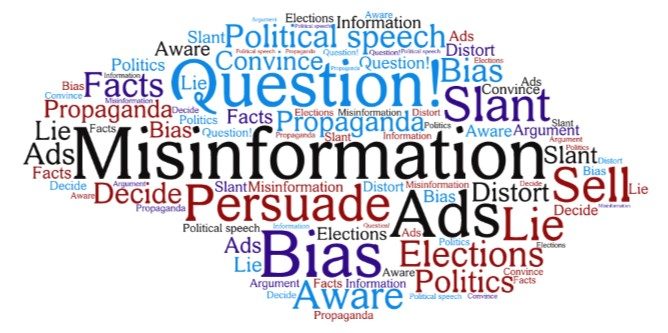Search: Useless Results Finally Recognized?
August 22, 2019
I cannot remember how many years ago it was since I wrote “Search Sucks” for Barbara Quint, the late editor of Searcher. I recall her comment to me, “Finally, someone in the industry speaks out.”
Flash forward a decade. I can now repeat her comment to me with some minor updating: “Finally someone recognized by the capitalist tool, Forbes Magazine, recognizes that search sucks.
The death of search was precipitated by several factors. Mentioning these after a decade of ignoring Web search still makes me angry. The failure of assorted commercial search vendors, the glacial movement of key trade associations, and the ineffectuality of search “experts” still makes me angry.
There are other factors contributing to the sorry state of Web search today. Note: I am narrowing my focus to the “free” Web search systems. If I have the energy, I may focus on the remarkable performance of “enterprise search.” But not today.
Here are the reasons Web search fell to laughable levels of utility:
- Google adopted the GoTo / Overture / Yahoo approach to determining relevance. This is the pay-to-play model.
- Search engine optimization “experts” figured out that Google allowed some fiddling with how it determined “relevance.” Google and other ad supported search systems then suggested that those listings might decay. The fix? Buy ads.
- Users who were born with mobile phones and flexible fingers styled themselves “search experts” along with any other individual who obtains information by looking for “answers” in a “free” Web search system.
- The willful abandonment of editorial policies, yardsticks like precision and recall, and human indexing guaranteed that smart software would put the nails in the coffin of relevance. Note: artificial intelligence and super duped automated indexing systems are right about 80 percent of the time when hammering scientific, technical, and engineering information. Toss is blog posts, tweets, and Web content created by people who skipped high school English and the accuracy plummets. Way down, folks. Just like facial recognition systems.
The information presented in “As Search Engines Increasingly Turn To AI They Are Harming Search” is astounding. Not because it is new, but because it is a reflection of what I call the Web search mentality.
Here’s an example:
Yet over the past few years, search engines of all kinds have increasingly turned to deep learning-powered categorization and recommendation algorithms to augment and slowly replace the traditional keyword search. Behavioral and interest-based personalization has further eroded the impact of keyword searches, meaning that if ten people all search for the same thing, they may all get different results. As search engines depreciate traditional raw “search” in favor of AI-assisted navigation, the concept of informational access is being harmed and our digital world is being redefined by the limitations of today’s AI.
The problem is not artificial intelligence.
The problem is the desire to eliminate the inefficiency, cost, and intellectual heavy lifting required to index content in a consistent, explainable manner. Commercial databases from the 1980s — for example, ABI INFORM, Investext, Predicasts, and others — relied on subject matter experts, published controlled term lists, and humans. Sure, automated functions were included. ABI INFORM used “intelligent” routines implemented by Howard Flank, one of the technical powerhouses behind ABI INFORM, Business Dateline, and a number of other commercial databases. The idea that humans were slow and expensive made it easy for individuals indifferent to the benefits of a professional approach to indexing machine readable content to just work to eliminate people. Efficiency, speed, and reduced costs: What’s the problem? The problem is that the paragraph above happily ignores what happened, who dropped the ball, and why the reaction to useless Web search results are just now being recognized.

Nice, quick work.
I also noted this passage:
Search on one major search engine for images of a specific historical aircraft cabin from the 1940’s and one will see only a few images of the intended aircraft, with the remaining images of unrelated aircraft that the search engine’s topical taxonomy lumps together with it. Interface changes made to encourage use of its guided search capabilities make it nearly impossible to determine which images are which, requiring users to open each image’s host page in a new browser tab to see its caption and descriptive text. Search for any major topic for which a search engine has a topical entry and one will likely encounter the same scenario. Even exact phrase matches increasingly return zero results even when the page itself is correctly indexed by the search engine and available through topical search, as search engines continue to depreciate the role of keyword search.
Yes, and this type of irrelevance has been the norm since Google’s IPO. In fact, the death knell for relevance sounded with the bell announcing Google shares were available to buy. At that point, Google’s ideals were vaporized. The company had to deliver results. Thus, the idealism of the Backrub kids was shattered. Without the inputs of the AltaVista team Google wouldn’t have had a search system to corrupt with the appropriation of the GoTo / Overture / Yahoo advertising paradigm. By the way, that paradigm cost Google about a $1 billion to make the lawsuit go away and guarantee the end of relevance.
The write up concludes with a reminder that smart software creates a world view. Not exactly. When a person looks for information, many people — including newly minted MLS professionals and glad handing MBAs — who think that what is online is accurate or “close enough for horseshoes.” The result is a deterioration in the informed individual’s ability to differentiate what’s important from what is not, understand what is valid within a particular research report and what is not, what is accurate in the context of a question and what is not, and a number of other types of intellectual discrimination.
What’s the fix?
I wish I could ride a unicorn under the rainbow. I cannot.
The loss of intellectual precision is disturbing. Sure, in any population, a tiny percentage of the individuals will be intellectually superior. That’s great. I skipped two grades. I attended the University of Illinois when I was 16. I went to work at Halliburton Nuclear when I was 22.
What has happened is that the vast majority of people with access to online search cannot perform the intellectual work required to make informed judgments. Decisions are made on “good enough” information. Proof? Look around. Scan the info in a news app.
If I were younger and still writing about search, I would point out that I have lived through the disassembly of the intellectual tradition based on old fashioned methods of obtaining information, sifting it, analyzing the data, and formulating conclusions.
How many researchers footnote themselves compared with researchers in 1650? How many technical papers present results that have been tweaked to deliver something new? How many engineers at certain technical companies fiddle algorithms so searches return something other than what the user wants? How many years have passed since educational requirements have been lowered to ensure that almost everyone gets a diploma? I may speak loudly at lunch today and tell everyone in the restaurant:
‘’Houston, we have a problem. Our data reveal that the USS Search Rocket has turned around and is heading back to base with almost a full load of fuel.”
But no one cares. Those who do can not make a meaningful change in that powerful device’s return.
Now what?
Why not ask Google or Watson? Over to you, capitalist tool. We have a small pothole on the Information Highway.
Stephen E Arnold, August 22, 2019





